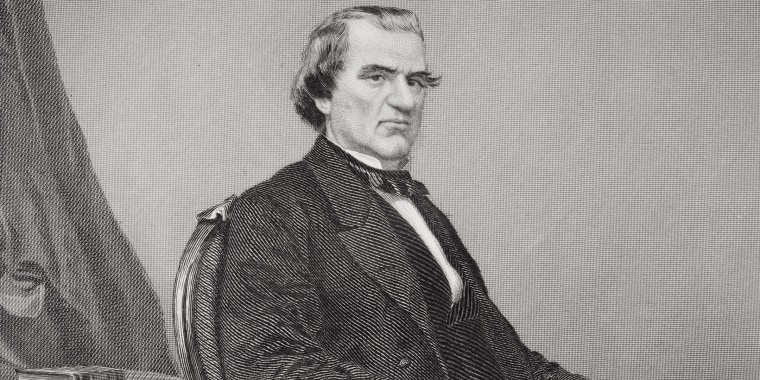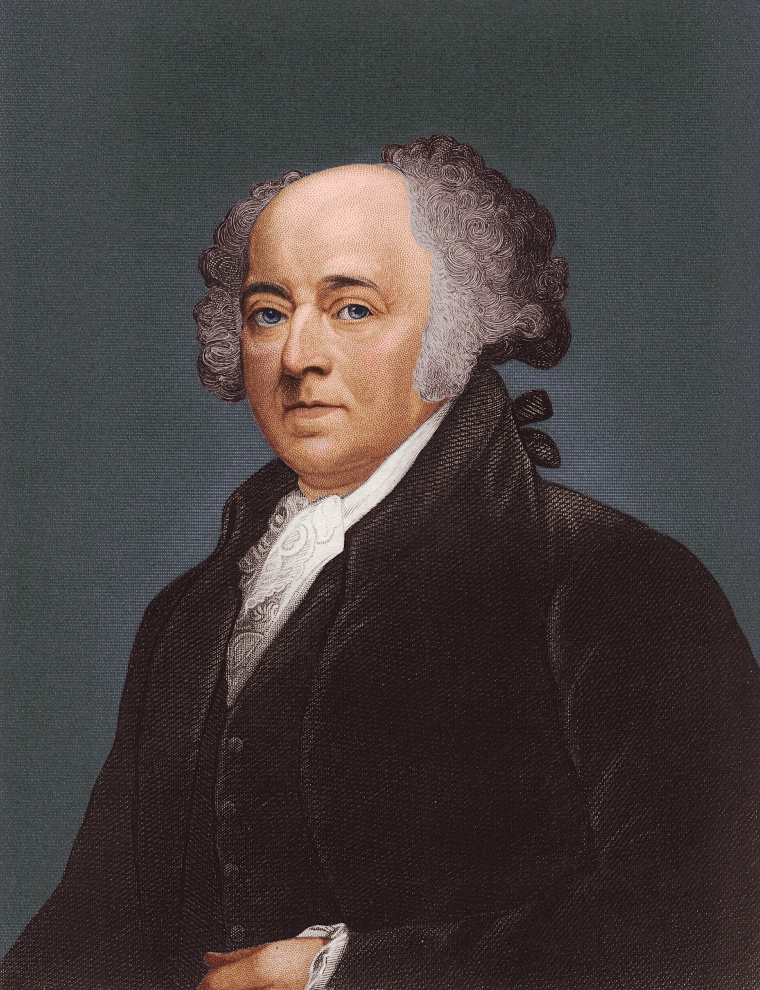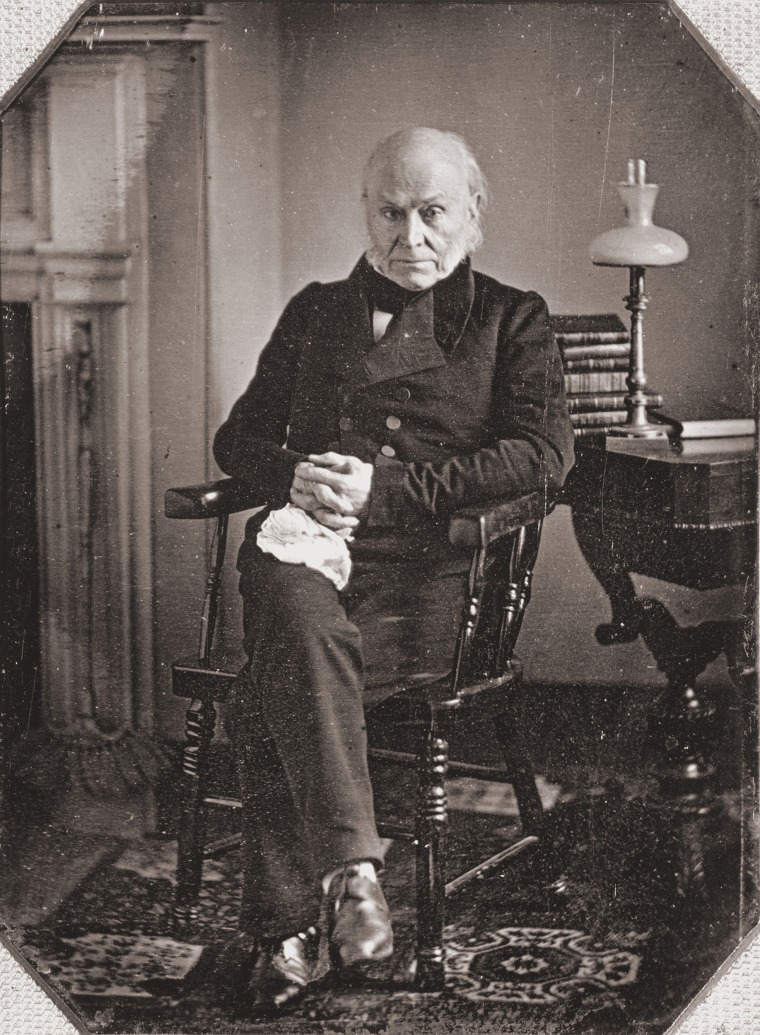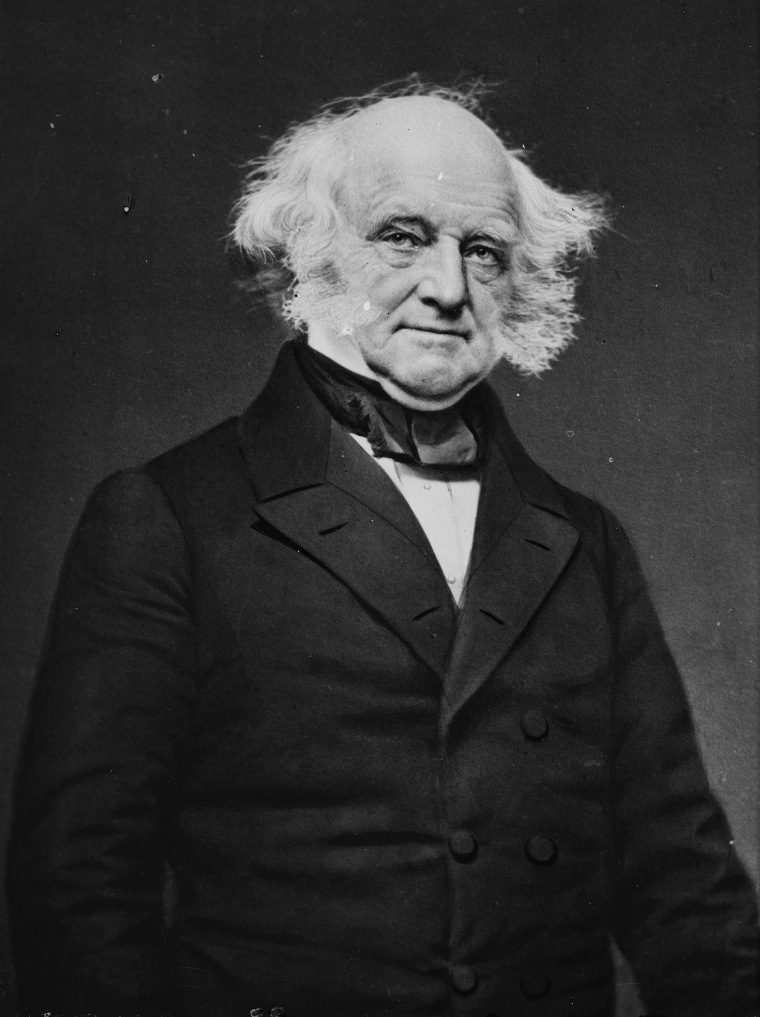President Donald Trump announced on Friday that he has made a decision that no president has made in 152 years.
Trump tweeted that he will not be in attendance at President-elect Joe Biden's inauguration on Jan. 20, making him the first president to decline to attend his successor's swearing-in ceremony since Andrew Johnson in 1869.

The 45th president has made repeated baseless claims that Biden's victory came as a result of a stolen election. He currently faces calls from lawmakers for impeachment or his removal via the 25th Amendment in his final 12 days in office after a violent mob of his supporters stormed the U.S. Capitol on Wednesday.
Trump's decision to forego the inauguration will make him one of just five presidents in history to not appear in person during the peaceful transition of power.
Here is a look at the four other presidents who did not attend the inaugurations of their successors.

John Adams, 1801
The nation's second president did not attend the inauguration for its third, Thomas Jefferson.
Adams never made it clear why he left the White House at 4 a.m. on the morning of Jefferson's inauguration on March 4, 1801, but he was never formally invited to the ceremony, according to The White House Historical Association.
Jefferson's win came after an "extremely partisan and outright nasty" election in 1800 as Adams sought a second term, according to the Library of Congress. Jefferson was Adams' own vice president and defeated him before the House of Representatives broke an electoral vote tie between Jefferson and his running mate, Aaron Burr, making Jefferson president and Burr vice president.
Adams may also have chosen to forego the ceremony to avoid fueling any simmering tensions between the two parties, according to the WHHA.
Jefferson's inauguration marked the first peaceful transfer of power from one party to another in America's young history, as Adams was a Federalist and Jefferson led the Democratic-Republican Party.

John Quincy Adams, 1829
The son of John Adams refused to attend the inauguration of successor Andrew Jackson, whom he had previously defeated in the 1824 presidential election.
Jackson won the popular vote in 1824 but didn't have enough Electoral College votes to be elected, which left the decision to the House of Representatives, similar to the situation between the elder Adams and Jefferson.
The House elected Quincy Adams, which Jackson later called "a corrupt bargain" after rumors that House Speaker Henry Clay and Quincy Adams had struck a deal to elect Quincy Adams president, according to Andrew Jackson's Hermitage.
Jackson won the rematch in the 1828 election, resulting in Adams following in his father's footsteps and leaving the White House a day before Jackson's inauguration.

Martin Van Buren, 1841
Van Buren, a Democrat, did not attend the 1841 inauguration of William Henry Harrison, a Whig, for reasons that remain unclear because the two appeared friendly.
Van Buren and Harrison met at the White House twice in the days leading up to the inauguration, including Van Buren hosting him for dinner, according to the White House Historical Association.
Harrison's win came four years after Van Buren had defeated him in the 1836 election.
Van Buren missed watching Harrison deliver the longest inaugural address in history, lasting an hour and 45 minutes. He then became the first president to die in office, only a month after the inauguration, most likely from ingesting the sewage-contaminated water supply at the White House, according to the Library of Congress.
John Tyler succeeded him by becoming the first vice president to ascend to the presidency after the death or resignation of the previous president.
Andrew Johnson, 1869
Johnson is the most recent president to decline to appear at his successor's inauguration after he refused to attend the ceremony for Ulysses S. Grant in the post-Civil War era.
Johnson, a Democrat from Tennessee, had ascended to the presidency after Republican President Abraham Lincoln was assassinated in 1865.
His unpopularity in his own party resulted in him not even securing the nomination in the 1868 election. Johnson and Trump share the fact that both were impeached by the House of Representatives during their one term, and both were acquitted by the Senate.
Grant, the leader of the Union Army in the Civil War, won easily over former New York governor Horatio Seymour in the 1868 election.
Grant and Johnson had a contentious relationship, with reports indicating that Grant would refuse to share a carriage with Johnson going to and from the Capitol, according to The Washington Post.
Johnson initially committed to attending the ceremony, but changed his mind and remained in the White House signing bills while Grant was sworn in.